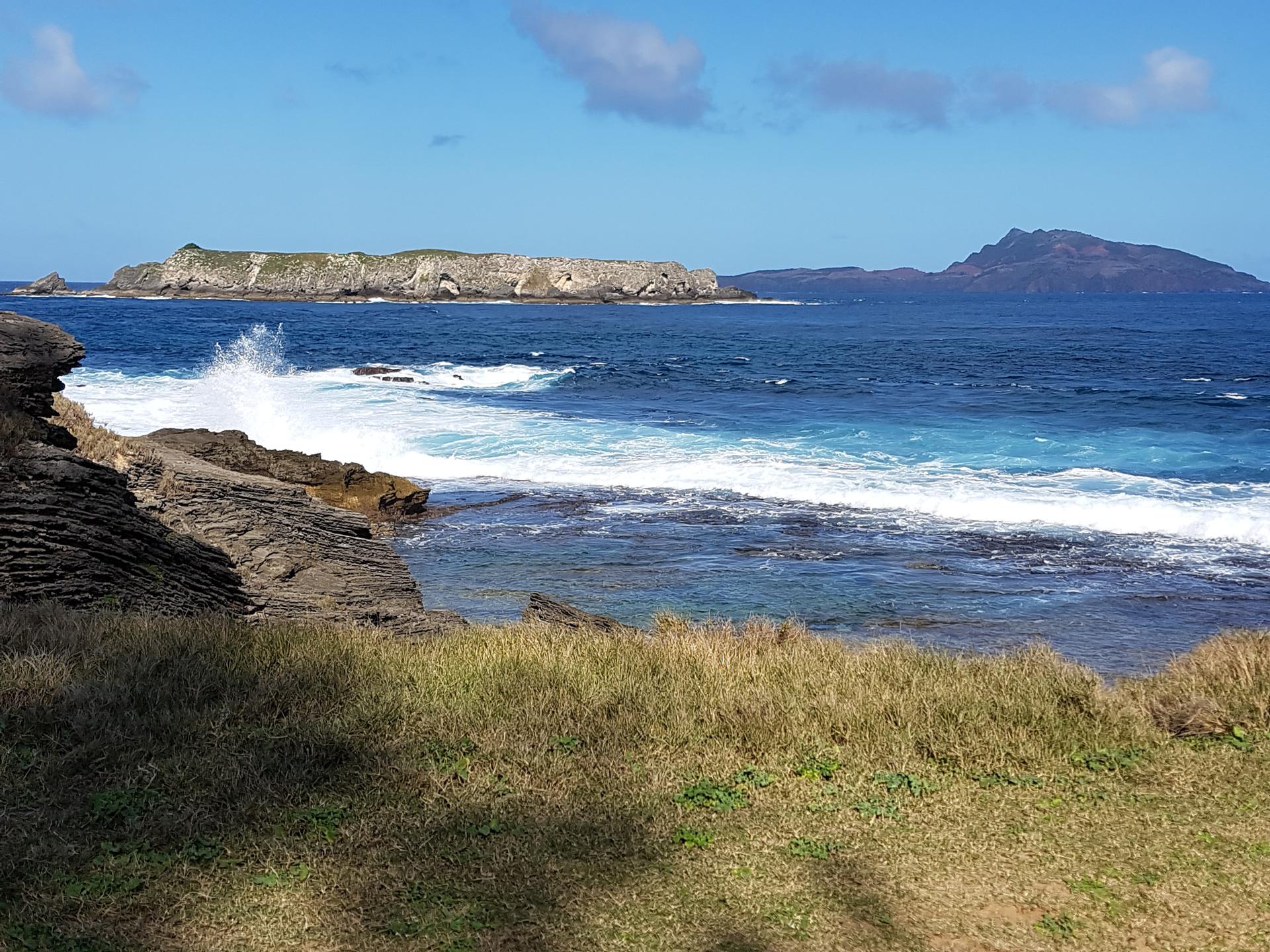Norfolk Island🇳🇫

Norfolk Island is a small British colony located in the South Pacific Ocean, between Australia, New Zealand, and New Caledonia. It's known for its sublime beaches, rare birdlife, rugged cliffs, lush subtropical rainforests and its historical significance as a former British penal colony. The island also hosts a strong cultural heritage, mostly from descendants of the Bounty mutineers and their Tahitian companions. Recommended activities include hiking in the Norfolk Island National Park, visiting the historic Kingston and Arthur's Vale Historic Area (KAVHA) and stargazing under Norfolk’s clear skies.
⚠️Things you should avoid⚠️
- Avoid drinking and driving as it's illegal and severely punished by law.
- Avoid littering. Norfolk Island has strict environmental preservation policies.
- Don't neglect to use sunscreen when enjoying the outdoor activities. Sun-burn can be quite a problem due to its Ozone-free location.
- Avoid traveling during cyclone seasons if possible.
- Avoid taking photos of locals without their consent, as it's considered impolite.
- Avoid wandering off the designated areas when visiting any of the delicate ecosystems to avoid causing any harm.
- Avoid interacting with the wildlife without the guide's advice; this may be harmful to both.
- Avoid public indecency; the locals appreciate modest behavior.
- Avoid any illegal activities; the community is small and closely knit, making such matters more noticeable.
- Avoid using drones in national parks and cultural heritage sites without necessary permissions.
Overall
9
Crime 🔫
9
With a crime rating of 9, Norfolk Island is considered quite safe. Given the close-knit community on the island and low population size, crime rates are minimal. However, due to limited policing facilities, petty crimes like theft may occur but are highly unusual.
Terrorism 💣
10
With a terrorism score of 10, there have been no known terror incidents on Norfolk Island. Located remotely in the Pacific Ocean, it is not a target for international terrorism.
War ⚔️
10
With a score of 10 for war, Norfolk Island remains peaceful and free from any form of armed conflict or war. It has no military disputes with other countries.
Natural Disasters 🌊
8
Although Norfolk Island hasn't faced any severe natural disasters recently, it holds a rating of 8 due to its geographic location which makes it susceptible to earthquakes, tsunamis, and cyclones. The island has implemented efficient disaster response plans to manage these events.
Medical Care 🏥
7
The island has a small hospital, which provides basic medical services. However, for serious medical conditions, medical evacuation is necessary. Hence, it gains a score of 7.
Tap Water Quality 💧
9
The tap water in Norfolk Island is safe to drink. The water supply is derived from rainfall, which fills underground reserves called 'lenses'. Water quality is regularly monitored for pollutants.
Disease Burden 🤒
10
With regular health checks and the remote location, the spread of diseases like COVID-19 has been largely contained in Norfolk Island. There have been no major disease outbreaks.
Corruption 💸
9
Corruption is not perceived to be a significant problem in Norfolk Island. Nevertheless, like any society, it is not completely immune to it. There are mechanisms in place to handle and report any suspected corruption.
Safety for Women ♀️
9
Norfolk Island is generally safe for women. With a low crime rate and a strongly bonded community, women can feel comfortable and safe. However, common sense precautions are always recommended.
Safety for Queer People 👬
8
As a small, remote community, Norfolk Island does not have a large LGBTQ+ scene, however, the locals are generally respectful and welcoming. Discrimination is not commonplace, but services and support may be limited due to the island's size.
Censorship 📺
10
There is no evidence of significant censorship in Norfolk Island. Free speech and access to media are generally respected.
Public Transportation 🚌
7
Public transportation in Norfolk Island is limited and there are no bus services. Rental cars, cycling, and walking are the common modes of transport. There have been no reports of major incidents or accidents.
Other useful information
🔒 How safe is it?
Norfolk Island is one of the safest travel destinations in the Pacific. With its low crime rate and limited risk of natural disasters, it's a perfect place for a serene getaway. However, visitors should remain observant and respectful of local customs and environmental regulations.
🏰 Embassies in this Country
There are no embassies on Norfolk Island. However, the local administration can assist in liaising with the Australian embassies and consulates, as the island is a territory of Australia.
💉 Recommended Vaccinations
Routine vaccines such as Measles, Mumps and Rubella (MMR), Diphtheria, Tetanus, Pertussis (DTP), Polio, and Hepatitis A and B vaccines are recommended before traveling to Norfolk Island.
🐍 Dangerous Animals
There are no dangerous animals on Norfolk Island, but visitors should be cautious of some marine life like sea snakes when swimming.
🛂 Visa Requirements
As a territory of Australia, the visa requirements align with those of Australia. Most tourists will need to obtain an Electronic Travel Authority (ETA) before visiting.
💲 Currency
The Australian dollar (AUD) is the official currency of Norfolk Island. You can exchange currency at local banks and at the airport.
💳 Credit Card Acceptance
Credit card acceptance is widespread on Norfolk Island. Mastercard, Visa, and Australian banking debit cards are accepted for transactions.
🧑🏭 Is it possible to work and travel in this country?
Though not a classic work and travel destination, work and travel is possible in Norfolk Island. However, opportunities may be limited due to its small size and the jobs available often revolve around tourism, hospitality, and agriculture.
💵 Cost of Travel and Living
Compared to its Pacific neighbors, Norfolk Island can be more expensive due to its remote location, which inflates the prices of imported goods. However, it's still manageable for most travelers.